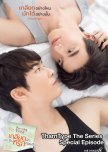
This review may contain spoilers
TharnType comes back to annoy us all for a very special episode of ignoring all its real issues. Our main couple declare their undying love for each other over and over again in what is nothing but embarrassing fan service while making sure to emphasise that Type is Definitely Not Gay (while everybody else around them is).
Type's big moments of coming out to his friends, family and Kom happen either offscreen, for laughs or in rushed broad strokes with all the emotions stripped from them. I should probably just be happy the writers dealt with those issues at all. They certainly didn't mention Type's trauma, apart from an impetus to his - apparently ongoing - hatred of Bad Gays.
Speaking of Bad Gays, Lhong wanders through to be forgiven by Tharn's brother in a truly disgusting scene that reminds us that Thorn is fine with San being in his brother's life too and therefore clearly doesn't actually care about him. He may as well hang a shingle on his door saying, "All Tharn's abusers are welcome here".
Essentially this "special" consists of random scenes with no real narrative thread or thematic underpinnings. It's basically "stuff fans might like to see" and I'm sure a lot of fans loved it. Even the weird cat/dog scene I'm scrubbing from my mind as we speak.
I guess if you sat through the first 12 episodes you may as well watch it. It changes nothing and adds nothing, except to my annoyance.
Was this review helpful to you?
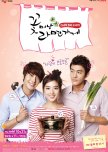
While some viewers may be thrilled to watch yet another clueless, awkward Candy bumbling her way to the love of a Chaebol, this is not one of those viewers. And while Korean writers are obsessed with the humour that comes from emotionally-stunted man-boys learning how to human, in this case the show is made even more tedious by the fact the male lead is an actual highschool-uniform-wearing boy. Albeit one who dresses like Gu Jun-pyo and has hair like Yoon Ji-hoo.
While the material in Biscuit Teacher and Star Candy was at least handled by exceptional actors, the acting in this is pretty sub-par - although I doubt anyone could have elevated the material these actors were given.
Regressive, reactionary and poorly-shot, with lacklustre direction and dated cinematography, this show is more of a televisual anthropology lesson than anything else.
As the first in the Oh! Boy Flower Boys series, I doubt it is necessary to watch it before moving to the more superior shows made later on.
Was this review helpful to you?
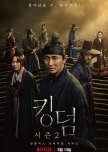
In the last few years, Korea has basically saved the genre. First it produced Train to Busan, which reclaimed the genre for a critique of hyper-capitalism. Now it comes back with Kingdom, not only a fast-paced, action-packed piece about fighting zombie hordes but a critique of three of the modern world's greatest challenges: the ineffectiveness of the nation state in the face of multiple challenges, the rise of groups that see their own wealth and power as more important than the wellbeing of society overall; and the tension between truth and fake news when trying to deal with a crisis.
Kingdom continues to be absolutely scathing of late-stage capitalism while simultaneously maintaining its Confucian roots. And the fact it appears while many of our governments are failing to deal with a serious pandemic makes the whole thing even more powerful and even prescient. It's a simple fact that elevates Kingdom to a new level.
More importantly even than that, it's a ripping good yarn with fantastic production values, great acting, deft writing and the ability to surprise just when you think it's about to tread a well-worn storytelling path.
I just hope our real life Kingdom problems don't stop the fictional Kingdom S3 from being made this year.
Was this review helpful to you?
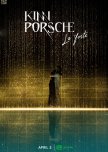
This review may contain spoilers
Trashy guilty pleasure with a side of good smut
Kinn is the second son of a mafia boss who meets the barfly, Porsche. With no parents and a younger brother to care for, Porsche is willing to do just about anything for money. Following an excellent first episode, he gets recruited to be a bodyguard for Kinn's gangster family. As the two fall in love, they find themselves mired in generic gangster shootouts and a complex family scandal that involves the mystery of Porsche's dead parents.Which is to say, that on paper KinnPorsche sounds like fun. In reality, it's A-grade, rolled-gold trash full of Makjang twists, inconsistent characterisation and a whole lot of sexy boys doing sexy things - most of it non-consensual or involving incest.
KinnPorsche is essentially a fetish drama, with the various fetishes interspersed with something that resembles a plot only in passing: it doesn't stand up to scrutiny, doesn't make much sense and isn't important anyway, frankly.
The show is also a tonal mess, with different direction and production styles clashing (the first episode is surprisingly good, the next two are confusing and contradictory, and the tones clash regularly from there).
But once you get past the idea that this show should be taken in any way seriously - and if you're in the right mood - it could be your latest guilty pleasure watch as it quickly descends into a morass of hot guys boning; sometimes drugged, sometimes drunk, sometimes underage, and sometimes as a result of chained-up basement torture. And nearly always when they're related in some way.
There's a lot of gratuitous sex and mindless violence and the odd, weird, fluffy date episode, which doesn't fit at all. But, I guess, for some people fluffy dating is their fetish so that's here for you as well.
The acting is actually pretty good, especially for a Thai BL, and the sex scenes are genuinely steamy as long as you handwave the rape, incest, torture, murder and creepy borderline paedophilia.
Kinn rapes Porsche, gaslights him, abuses him, manipulates him and yet the relationship somehow seems the most healthy when compared to the other ones in the show. Especially Vegas/Pete ["Nobody can hurt you but me!"] and the super creepy Kim/Porschay ["You're my underage cousin but I'm going to manipulate you into kissing me anyway"].
Anyway, put your brain on hold and enjoy the abuse trainwreck. Otherwise, steer clear.
Was this review helpful to you?

The show started off very strong. Although Derek Chang's An Quinhui is very young and very immature, he has lovely chemistry with Ruby Lin's Xiaofei. The acting is very good and, at least in the beginning, the show has a nice vibe of verisimilitude: these people feel real, their lives feel real and the story feels real too. This is a classic slice of slice drama - or at least it is until the episode 14 mark where it starts to go horribly wrong.
At one point it became clear that Quinhui was far far too young and far too immature for Ruby Lin's character and the idea this relationship would progress to a romance was somewhat laughable. No mature professional woman her age would be genuinely interested in this child and yet the show pursued the relationship anyway. It's not surprising that it inevitably crashed and burned.
I am yet to see a Taiwanese drama that doesn't attempt to fill its long episode run with a touch of Makjang and unfortunately this was no exception. The last few episodes were a tough watch as An Quinhui responds to his feelings in the most immature way possible and the people around the main couple behave just as badly. In the end, what I had enjoyed about the show was slowly eroded until I was just left with frustration and second-hand embarrassment.
I only finished this show because I'd already devoted so much time to it. It's yet another Taiwanese drama that started off well but couldn't maintain it over so many episodes.
Was this review helpful to you?

Park Seo Joon and Kim Ji Won play average late-20s friends who have given up on pursuing their dreams because of the cost of living and the need for money. After a number of false starts and embarrassing failure, they finally find the strength to choose passion and happiness over drudgery. These two are fun and loveable leads whose strong friendship and love helps support each other through life. They're a delight to watch.
Kim Ji Won, in particular, gives Ae Ra a perfect mix of vulnerability and badass; combining hilarious aegyo and no-nonsense protectiveness to create one of the most compelling kdrama leads to date. Park Seo Joon is always a nuanced actor to watch and his brainless, hot-tempered but warm-hearted Dong Man will make you fall in love with him.
The second couple in this story are less interesting and, while their plotlines are no-less thematically important, I often lost interest when the attention switched to them. The plotting isn't perfect: there are number of disappearing characters, dropped plot lines and narrative digressions. And the show briefly falls flat when the couple first get together because of the dictates of the kdrama OTP tropes.
But none of this detracts from the enjoyment of the show. More importantly, this show ends well and doesn't suffer from the episode 14 kdrama slump. It maintains its pace to the end.
I could give this a lower rating for a number of reasons but it's such a satisfying watch that it deserves the 9/10.
Was this review helpful to you?

This review may contain spoilers
The thing that strikes me about Kill It was that the underlying story was compelling. Horrible? Sure. A little ridiculous? Definitely. But if it is the role of art to exaggerate to teach, then Kill It had a lot to say about the commodification of people.So it’s a damn shame that it didn’t say anything at all.
Kim Soo Hyun (played with the charisma of a dead tree log by the usually appealing Jang Ki Yong) is a veterinarian who is also a professional killer. Lee Young Eun (played with weirdly inappropriate sexual overtones by Nana) is a former ballerina turned cop who is chasing him. These two have a childhood connection around a shared trauma that brings them back together again and exposes a horrible conspiracy around experimentation on unwanted children.
Part of the problem is that I didn’t connect with any of the characters so didn’t really care what happened to them (with the possible exception of Kim Soo-hyun, whose arc was strangely under-developed considering he was the male lead). And the reason for that was entirely in the approach the writers took to tell the story.
Telling the story of these children from the ground up would have been a dark but fascinating story. But instead the show chose to tell the story from the other side.
Blank-faced assassins, helpless damsels, and rich men sitting around scheming just isn’t that interesting – unless the blank-faced assassin is dogmatic and determined and his motivation is entirely about revenge for the horrors visited upon him. A half-hearted blank-faced assassin who’d rather be playing with puppies might sound good on paper but this is supposed to be a Korean action/thriller, not a Guy Ritchie film.
They should have concentrated on the human aspect of the bioethics issue rather than throwing things together in some sort of plot soup of hit men, drug runners, organ smugglers, chaebols, corrupt politicians and human traffickers. That would have been a really tragic and compelling story.
I’ve come to realise that action thrillers are suffering from the same problem that romcoms are. They’re written from a template and the only thing that changes is the [insert childhood trauma caused by evil scheming chaebols] plot outline.
I also think the writers were trying to give a Healer vibe but Healer wasn’t a stone-cold killer for a reason and Healer had clear reasons for every decision he made. Which brings us to the way in which this show ultimately fell down: the core relationship between our male and female leads. At least, I think this was supposed to be our core relationship. The problem is it never made much sense.
I never knew if I was supposed to be shipping them, feeling aggrieved that she was being lied to, seeing this as some of doomed tragic love story, or what. I felt none of those things. Apart from the odd maelstrom of misplaced sexual longing, these two never connected: either as childhood friends or adults brought together by circumstance. Certainly not as potential lovers (although I live for the day a kdrama is brave enough to go there).
As a consequence, what this show lacked was an emotional core. It disassociated its characters from the emotional resonance of what had happened to them and so it failed to resonate with us, the viewer, as well.
The saddest thing about writing this is I can’t even mock the show in the end. It had all the ingredients of a much better drama. It’s not that bad, it’s just generic – even boring.
There’s no need to see it – you already have.
Was this review helpful to you?
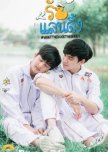
At the beginning this seemed like a standard BL: full of the same tropes but a bit quirky and funny. By the end, it was such an interesting and complex study of relationships.
This was far more nuanced and sensitive than I could have originally foreseen, especially around the progression of the main OTP. By initially embodying all the standard tropes, it was so much more effective when the show basically upended them halfway through. I'm not even sure if Pop and Oat are going to end up together or even what "together" means. What is love anyway? seems to be the question the show is asking and it asks it in a variety of ways.
As a consequence of this more-nuanced storytelling, some of the humour of the earlier episodes was lost at the end and the anticipated Season 2 meant several plotlines weren't resolved. In fact, after 20 episodes, I was a little bit disappointed that the show didn't have an ending. It meant the final two episodes felt meandering and anti-climactic.
But for being so unexpectedly enjoyable to watch, this is a strong 8/10
Was this review helpful to you?
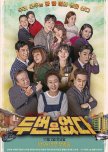
Instead, this review will mostly concern itself with OMG IT'S A BABY!!!! Have you ever seen that xkcd cartoon where they graph human intelligence by inanity of statements against the presence of a kitty? Well, that's pretty well this show. There's a whole standard weekender plotline in here about found family and evil Chaebols and justice winning and everyone learning to just get along. But when up and coming actors Park Se Wan and Kwak Dong Yeon DO BABY none of that actually matters.
Sure this means that there's only one plotline anybody who watched this show cared about but it's a good plotline. Kwak Dong Yeon gushing over a baby is almost worth 36 episodes of television (72 in the stupid numbering) and, actually, 36 episodes is not too bad for a weekender. I sat through 50 episodes of Good Thief, Bad Thief and that had no baby at all.
Seriously, Park Se Wan and Kwak Dong Yeon are great emerging actors and there is A BABY and the main romance at least is quite good (if a bit rushed, don't do any math). The fast forward button was invented for a reason so if you're not afraid to use it and don't mind that the average weekender inevitably feels both saccharine and flat overall, then I recommend, oh, at least 10%-15% of this show.
Was this review helpful to you?

This review may contain spoilers
Hey Korea! That Dark show was good, wasn't it? Really broke our minds and broke our hearts. The timey wimey of it all. The tragedy! The emotion! The incest! Let's try to remake it but in a way that's, you know, Korean.
So what would that look like?
Well, for a start our plot has to make no sense. Like absolutely no sense. Because for the plot to make sense and for time travel to be eliminated then our male lead would have never been born. We can't have that though! He's the male lead! He's supposed to beat the bad guys and win the girl! The girl is his mother but Dark told us incest was okay! (This is the opposite of what Dark told us by the way. All of Dark's incest was unintentional and tragic and doomed and what show did you watch?)
So our male lead's mother invents time travel and then travels through time not knowing she's pregnant. She raises him back in the 90s and he becomes a super special magic snowflake (well, he is a Korean man) and his mother raises him the very bestest she could despite the emotional problems caused by radiation damage (due to the aforementioned in utero time travel).
She's murdered when he's 19 and he becomes a cop to find out who did it and then a decade later he meets a woman who looks exactly like his mother. Because she is his mother. She is his mother from this timelime. But even if she wasn't, she looks exactly like her. As in a carbon copy of her.
There's a brief moment of powerful emotional resonance around this. His mother was the only one he had any semblance of emotion for due to his brain damage and her death affected him more deeply then he's capable of expressing. And suddenly this doppelganger is before him dredging up all that inadequately processed grief, loss and guilt.
But, hey, this is a kdrama. So what does it need? It needs romance! It needs a crazy second female lead! It needs cohabitation and hijinks! So what does the show do with this powerful emotional moment between a man and the doppelganger of his dead mother?
It turns it into an inexplicable, utterly gross cohabitation romcom. Sure, he knows this woman IS his mother from this timeline but the show still devotes episode after episode to the romcom version of incest. She walks in on him topless! She treats his wounds! She gets stuck in a store room with him and accidentally removes his shirt! All of this is of course misunderstand by the obligatory psycho second female lead. She knows this woman looks exactly like his mother but still freaks out over him spending time with her. Not despite her looking like his mother. BECAUSE of her looking like his mother. It's weird, it's creepy, it's gross. I have insufficient synonyms to express its awful.
And to get sidetracked for a moment by the second female lead, she's one of only four female characters in this show - the male lead's mother, her alt-version in this timeline, his best friend who's always liked him and an agent in 2050 who's in love with his father, (who still working for Alice). Written out like that, you can sense a theme here. Every single one of these female characters is defined solely by her relationship to a man. Mother, lover, spurned psycho. The writer can conceive of no other role for a woman: no aspirations, no second dimension, no real depth or character. She's either trying to get a man, in a relationship with a man or taking care of her children in a way that's utterly self-sacrificing. This show could have been written by Moffatt, it is that rife with embedded misogynism.
By the end, his mother's invention of time travel becomes some kind of offensive allegory for pregnancy, as though she gave birth to it when she gave birth to her son (everyone knows this is a woman's only real skill so even her amazing scientific achievements are framed as such). The woman invented fucking time travel but it's still used as a metaphor for life coming out of her womb. Does she kill this life or not? Well, of course she can't! She's a mother! So now the whole thing is merely an anti-abortion screed. It's offensive and sexist and misogynistic and it also makes no sense. She invented time travel, not her son. Killing him is irrelevant to its invention and to the establishment of Alice. So as well as being offensive it also doesn't make any sense.
Anyway this show is supposed to be about Alice. So what about Alice? Obviously our male lead's mother is Alice or maybe time travel is Alice. Or maybe he is Alice. Oh who knows. Alice is the name of an organisation based in 2050 that sends people back in time to help them resolve their emotional traumas - for money of course. The male lead's mother helped invent time travel but who set up Alice? Where did it come from? Who runs it? Where is it? None of these questions are answered. And since this show becomes about destroying Alice as some kind of proxy for destroying time travel then this matters. It matters a lot.
We find out early that there are other players in time travel. Rebels who let people travel outside of the network set up by Alice. A prophecy that predicts the end of time travel. A mysterious figure who seems to be trying to kill our male lead or his mother-girlfriend. (Oh at one point we discover that his mother was planning to adopt her alt-universe version and raise her as her own, which makes her also his adopted older sister - Yay for incest!).
None of this is brought together in any way that makes sense.
For those who haven't seen Dark, I don't want to spoil Dark. I'll just say that the outline of this plot is very obviously inspired by Dark. But those elements have been ripped from it thoughtlessly and without context so the whole thing comes off as glossy, nonsensical and shallow. There are some nice themes hiding in here and even some nice dramatic moments as well. The acting at certain points is absolutely top notch.
For a brief moment, the show's grasp of the multiverse theory of time travel isn't too bad either and you start to wonder if the show might pull this whole thing off (and you've fast forwarded all the bizarre romcom cohabitation tropes between him and his mother so you're just pretending that didn't happen). But as the show heads into its final two hours you soon realise it's not going to make any sense. And then - like almost every other time travel show coming out of Korea - it opts for utter nonsense in its pursuit of a 'happy ending'.
And since, in this case, the 'happy ending' involves a romance between a man and his mother, I wish I could burn the whole thing from my brain.
The shorter version of this review.
Just watch Dark.
Was this review helpful to you?
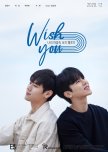
It's not that it's *bad*. It's more that it's kind of nothing.
It started off quite well. Kang In Su and Yoon Sang Yi have a mutual love of music and a mutual attraction, though each is oblivious to the others' interest. When Sang Yi's record company scouts In Su, they end up cohabiting and... nothing.
While the first episode is interesting and well-paced, the show's pacing then slows to a crawl. The two don't even speak to each other till the end of episode 4 and then the shows veers unexpectedly into a cohabitation drama full of lens flare and little else.
Being Korean, the production values are high and some shots are truly beautiful. The acting is however a little wooden and awkward; both boys seemingly uncomfortable around each other in an awkwardness that doesn't seem cute or deliberate but just due to both of them being green. For a drama about music, a lot of it was quite banal, although there were a few nice pieces here and there.
It seems as though the writers wanted to write a story about the love of music and keeping your artistic integrity but were forced to torture parts of it into a classic BL. One day someone will learn that a gay love story can be both of these things at the same time but today is not that day. Instead the drama is stuck somewhere in the middle being not much of anything.
That is to say, there is little wrong with Wish You and if Korea had made this first I'd have been praising them for doing BL at all. But after this year that ship has sailed. Still, I can say that the relationship between the two boys seems quite functional and is built on mutual interest and respect. So it has that going for it. In the end, I guess it's the story's potential to be much more than this that is the most disappointing.
Was this review helpful to you?
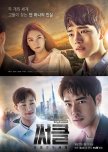
Circle is a rare Korean science fiction drama; a mind-bending, time-warping tale with the first half of each episode set in 2017 and the second half 20 years in the future. Events unfold simultaneously in both timelines, with 2017 and 2037 being inextricably intertwined.
Future cop Kim Joon-hyuk (Kim Kang-woo) in 2037 tries to uncover the mystery of what happened to a set of twins Kim Woo-jin (Yeo Jin-goo) and Kim Bum-gyun (An Woo-yeon) back in 2017, while in that time we see the two young men embark on their own investigation around the mystery of Han Jung-yeon (Gong Seung-yeon), whom Bum-gyun is convinced is an alien.
At a tight 12 episodes, the show wastes little time on filler and instead launches itself into action from frame one. It's a thrilling ride that barely allows you to draw breath in either time period as it races to a fascinating and at times unexpected conclusion.
The future envisaged by Circle includes memory-altering technology and the show's constant questioning of how our memories shape who we are is endlessly insightful and often poignant. The ambiguity the show retains even as it answers our questions is its best quality and it's that ambiguity that has led to hopes the show would have a second season.
Circle is a rare beast from Korea and its almost-universal acclaim may make it possible for the country to start producing more hard science fiction. We can only hope that happens soon.
Was this review helpful to you?
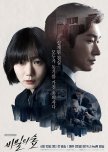
Bae Do Na and Jo Seung Woo are exceptional in their roles as a rare non-romantic buddy-cop partnership. While this show deals with familiar themes of corruption that kdrama viewers will find familiar, it is an interesting and gripping examination of the issue with a verisimilitude that borders at times on depressing.
Intelligent, fierce, uncompromising and stark, this is television at its finest.
10/10
Was this review helpful to you?

This review may contain spoilers
A bemusing set of contrasts, Castaway Diva will stun you with its premiere episodes outlining a beautifully tragic backstory of crushed adolescent dreams and then launching into a headscratching modern day tale of.... I don't even know.What was Castaway Diva ultimately about?
Seo Mok Ha (an always class act, Park Eun Bin), is an aspiring singer who longs to follow in the footsteps of Diva, Yoon Ran Joo (Kim Hyo Jin). Running away from an abusive father with the help of fellow classmate Kiho, she ends up stranded on a deserted island for 15 years. Improbable, maybe. But as a metaphor for having your early dreams slip away from you due to tragic, uncontrollable circumstance, it was pretty good. The show had shades of the delightful Thirty But Seventeen.
Fifteen years later, Mok Ha is rescued and tries to revive the career she aspired to while reconnecting with the loyal and generous Kiho.
Except that isn't what Castaway Diva is really about at all. Instead, the show veers off endlessly into the mid-career travails of the fading Ran Joo who isn't as successful as she'd hoped and is struggling with a disloyal agency and nodes. The idea this could somehow equate to 15 years on a deserted island alone after burying your abusive father is outright bonkers. The parallels between these two concepts - the literal and figurative isolation of obscurity for an idol - seems to be what this writer is trying to make and it's frankly gross. Ran Joo comes off as spoilt and entitled and narcissistic and Mok Ha gets dragged into outright fraud in trying to support her idol.
Kiho meanwhile is stranded on his own figurative island (or something) but the connections between these three 'castaway' plotlines is tenuous at best and, in the case of Ran Joo, borderline offensive.
The show is beautiful at several points and the casting is excellent. But the music, like most idol music dramas, is overproduced and often generic. PEB has several laughable moments with her guitar singing solo where the music is so overproduced that you can barely hear her real voice at all. The child actor in comparison had some real moments where you believed she was a raw talent. The rest of the music, apart from a few exceptions, is typically banal.
With an absolutely brilliant opening two episodes and a slow descent into the tedious, Castaway Diva truly is from the sublime to the ridiculous in one show.
Was this review helpful to you?
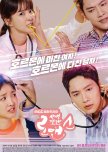
This is the best drama ever.
There are few Korean dramas that have brought me and those around me such joy.
The story!
The acting!
The subs!
Lee Shi Young plays endocrinologist Joo In Ah. She works with bad-tempered surgeon Han Seung Joo (Ji Hyun Woo). Seung Joo has an hormonal imbalance that affects his behaviour and that eventually becomes life threatening. They never explain what kind of brain damage the female lead has, although her mental deficiencies are just as obvious.
Seung Joo blames Shi Young for the death of his friend. The real culprit is her awful, selfish adopted sister. But neither is the culprit really - this is just bog-standard misogynism where women get blamed for everything just for existing.
These two unlikely mental patients fall in love. They have a certain enjoyable level of cute but the real OTP is Seung Joo and his dongsaeng, Cha Jae Hwan. It's such a shame that even in this day and age they have to hide their love away.
Risky Romance is best watched and enjoyed with illegal subs hastily cobbled together from the Indonesian translation by a high school student in Jakarta. That's the only way to really appreciate the true comic brilliance of this show.
Anything else might make you realise the show is actually terrible.
But watching this train wreck unfold slowly week to week truly gave me joy. I hope it can bring you the same joy.
Was this review helpful to you?

 1
1


















